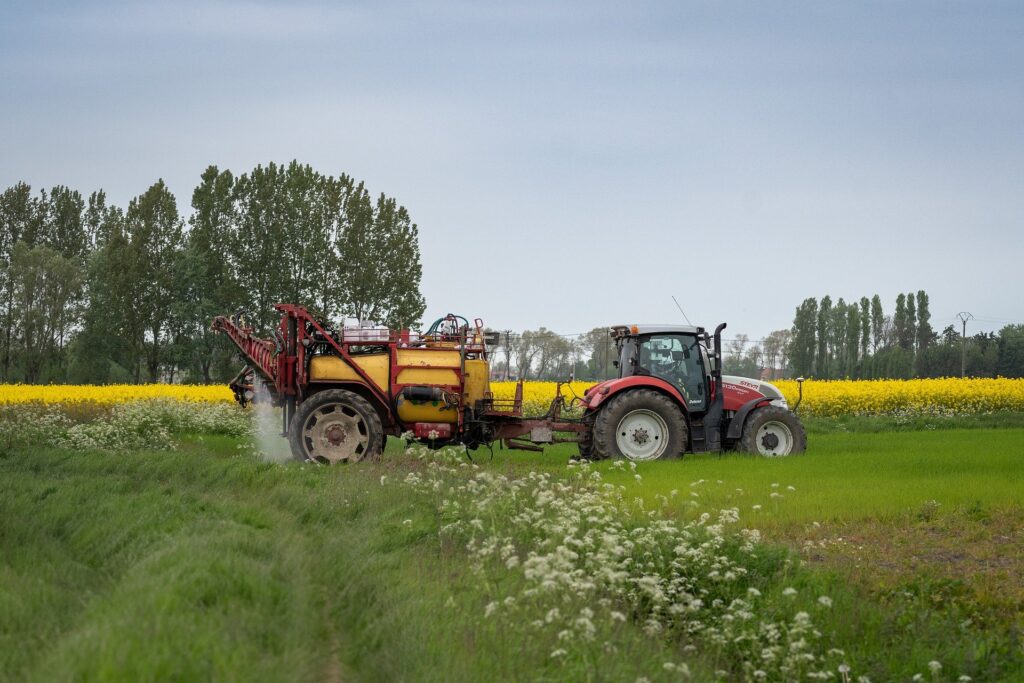Table of Contents
Introduction
The agriculture department is a cornerstone of the agricultural sector, playing a vital role in ensuring food security, promoting sustainable practices, and supporting rural economies. It serves as a bridge connecting farmers, researchers, policymakers, and consumers. For individuals seeking a fulfilling career, the agriculture department offers numerous opportunities that can lead to both personal and professional success. This blog will delve into the functions of the agriculture department, explore various career paths it offers, discuss essential skills for success, highlight personal development opportunities, address challenges faced by professionals in the field, and examine the future of agricultural careers.
I. Understanding the Agriculture Department

Role and Functions
The agriculture department operates at local, state, and national levels to oversee a wide range of activities related to agriculture. Its primary functions include:
- Policy Development: The agriculture department is responsible for crafting policies that support agricultural growth and sustainability. This includes regulations on food safety, environmental protection, and land use.
- Research and Development: The department funds and conducts research aimed at improving agricultural practices. This includes developing new crop varieties, pest management strategies, and sustainable farming techniques that enhance productivity while protecting natural resources.
- Education and Outreach: Providing resources and training for farmers is a crucial function of the agriculture department. Extension services offer workshops, seminars, and educational materials to help farmers adopt best practices and improve their operations.
- Market Regulation: The agriculture department monitors agricultural markets to ensure fair pricing for both consumers and producers. This involves collecting data on market trends and implementing measures to prevent price manipulation.
Importance in Economic Development
The agriculture department plays a critical role in economic development by:
- Ensuring Food Security: By supporting farmers and promoting efficient agricultural practices, the department helps ensure a stable supply of safe and nutritious food for the population.
- Supporting Rural Development: Agriculture is a significant source of employment in rural areas. The agriculture department’s initiatives contribute to job creation, infrastructure development, and overall economic stability in these regions.
- Fostering Innovation: By funding research and encouraging the adoption of new technologies, the agriculture department helps drive innovation in farming practices. This not only increases productivity but also enhances sustainability.
II. Career Opportunities in the Agriculture Department
Diverse Career Paths
The agriculture department offers a wide array of career opportunities for individuals passionate about making a difference in the agricultural sector. Key roles include:
- Agriculture Officer: These professionals implement agricultural policies at local or state levels. They work directly with farmers to provide guidance on best practices and compliance with regulations.
- Agricultural Scientist: Engaged in research to develop new farming techniques or improve crop yields, agricultural scientists play a crucial role in advancing agricultural knowledge.
- Agricultural Technician: Supporting scientists by conducting experiments and collecting data, agricultural technicians are essential for the practical application of research findings.
- Agronomist: Specializing in crop production and soil management, agronomists work to enhance agricultural practices through scientific principles.
- Environmental Engineer: These professionals focus on projects related to sustainable farming practices and environmental protection, ensuring that agricultural activities do not harm natural resources.


Popular Job Roles and Salaries
Here’s an overview of some popular job roles within the agriculture department along with their average salaries:
- Agriculture Officer
- Average Salary: $60,000 – $80,000 per year
- Responsibilities: Implementing policies, managing programs, conducting outreach to farmers.
- Agricultural Research Scientist
- Average Salary: $70,000 – $90,000 per year
- Responsibilities: Conducting experiments to develop better farming practices.
- Agricultural Technician
- Average Salary: $40,000 – $50,000 per year
- Responsibilities: Assisting scientists with research projects by collecting samples and data.
- Agronomist
- Average Salary: $65,000 – $85,000 per year
- Responsibilities: Improving crop yields through soil management techniques.
- Environmental Engineer
- Average Salary: $75,000 – $95,000 per year
- Responsibilities: Designing systems that promote sustainable agricultural practices while protecting natural resources.
Qualifications Required
To pursue a career in the agriculture department, individuals typically need relevant educational qualifications. Most positions require at least a bachelor’s degree in fields such as:
- Agricultural Science
- Environmental Science
- Horticulture
- Soil Science
- Agricultural Engineering
Advanced positions may require a master’s degree or Ph.D., especially for research-oriented roles.
III. Skills for Success in Agriculture Careers
Technical Skills
Technical skills are essential for success in any agricultural career. Professionals should have a solid understanding of:
- Crop Science: Knowledge of plant biology and cultivation techniques is crucial for those involved in crop production or research.
- Soil Management: Understanding soil health—its composition and how it affects crop growth—is vital for agronomists and other agricultural professionals.
- Agricultural Technology: Familiarity with modern tools such as drones for monitoring crops or precision farming technologies can enhance efficiency in farming operations.
These skills enable professionals to make informed decisions that enhance productivity while minimizing environmental impact.
Soft Skills
In addition to technical expertise, soft skills play a crucial role in career advancement within the agriculture department. Key soft skills include:
- Communication: The ability to convey complex information clearly is essential when working with farmers or stakeholders who may not have technical backgrounds.
- Problem-Solving: Developing innovative solutions to challenges faced by farmers or within agricultural systems is critical for success in this field.
- Project Management: Organizing resources effectively to implement programs or conduct research successfully requires strong project management skills.
Strong interpersonal skills are also important for building relationships within the agricultural community.


Continuous Learning
The field of agriculture is constantly evolving due to advancements in technology and changing environmental conditions. Professionals must engage in continuous learning through workshops, seminars, online courses, or further education to stay updated with new practices and innovations.Organizations such as local extension services often provide training programs that help professionals keep their skills current while adapting to industry changes.
IV. Personal Development through Agricultural Careers
Impact on Personal Growth
Working in the agriculture department fosters significant personal growth. Individuals develop valuable skills such as leadership and teamwork while working on projects that have a direct impact on communities. The challenges faced in this field often build resilience as professionals learn to adapt to changing circumstances.For example:
- An agriculture officer may lead community workshops that not only improve farming techniques but also enhance their public speaking skills.
- An agronomist conducting field trials learns how to manage teams effectively while navigating unexpected challenges related to weather or pests.
Networking Opportunities
Networking is an essential aspect of career development in agriculture. Building relationships with other professionals—such as farmers, researchers, policymakers—can lead to mentorship opportunities and collaborations that enhance career prospects. Attending industry conferences or joining professional organizations can provide valuable networking platforms where individuals can share experiences, learn from one another, and explore potential job opportunities.For instance:
- Joining organizations like the American Society of Agronomy can connect individuals with peers who share similar interests while providing access to resources that aid professional growth.
V. Challenges Faced by Professionals in Agriculture
Market Fluctuations
One of the significant challenges faced by professionals in agriculture is market volatility. Prices for crops can fluctuate due to various factors such as weather conditions or changes in consumer demand. This unpredictability can affect job stability within the agriculture department as funding for programs may be tied to market performance.For example:
- If crop prices drop significantly due to oversupply or decreased demand from consumers (like during economic downturns), it may lead to reduced budgets for research initiatives or outreach programs aimed at assisting struggling farmers.
Environmental Concerns
Climate change poses another challenge for professionals working in agriculture. Rising temperatures, erratic rainfall patterns, and increased frequency of extreme weather events can disrupt traditional farming practices. Addressing these environmental concerns requires innovative solutions that promote sustainability while maintaining productivity.For instance:
- Agricultural scientists may need to develop drought-resistant crop varieties or implement water-saving irrigation techniques that help mitigate these impacts.


Policy Changes
Government policies significantly influence agricultural practices. Changes in regulations or funding can impact job security within the agriculture department or alter priorities for research initiatives. Professionals must stay informed about policy developments so they can adapt their strategies accordingly.For example:
- A sudden shift toward stricter environmental regulations could require immediate adjustments by agricultural officers who are tasked with ensuring compliance among local farmers.
VI. The Future of Careers in Agriculture
Emerging Trends
As we look toward the future of careers in agriculture, several emerging trends are shaping the industry landscape:
- Technological Innovations: Advancements such as precision agriculture tools (drones equipped with sensors) are transforming how farmers manage their operations—allowing them greater insights into crop health while optimizing resource use.
- Sustainability Focus: There is an increasing emphasis on sustainable farming practices that protect natural resources while ensuring food security—creating demand for specialists who can guide farmers toward eco-friendly methods.
- Biotechnology: Innovations in biotechnology are leading to improved crop varieties that are more resistant to pests/diseases—opening new avenues within research sectors focused on genetic engineering techniques aimed at enhancing yield potential without compromising quality.
These trends create new job opportunities within the agriculture department as professionals adapt their skill sets accordingly—ensuring they remain relevant amidst rapid changes occurring across various sectors!
Government Initiatives
Government support for the agricultural sector is likely to grow as food security becomes an increasingly pressing issue globally—especially given rising populations coupled with climate change challenges impacting traditional farming methods! Initiatives aimed at promoting sustainable practices (like organic farming) or funding research projects will create additional job opportunities within departments focused on advancing these goals further down line!
Conclusion
The agriculture department serves as a crucial pillar supporting not only food production but also personal fulfillment through diverse career opportunities available across various disciplines! By understanding its role within economic development—exploring various career paths—developing essential skills—and navigating challenges effectively—individuals can find rewarding careers contributing positively towards society while achieving personal success!As we move forward into an ever-evolving landscape shaped by technological advancements alongside environmental considerations—now is an exciting time for those considering pursuing careers within this vital sector! Whether you’re passionate about policy development or scientific research—the agriculture department offers pathways toward making meaningful contributions while fostering professional growth!